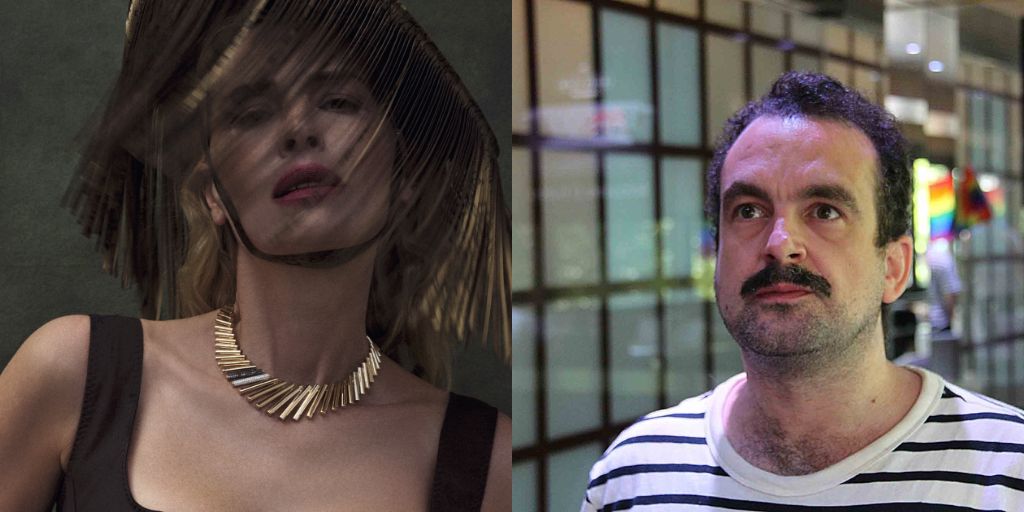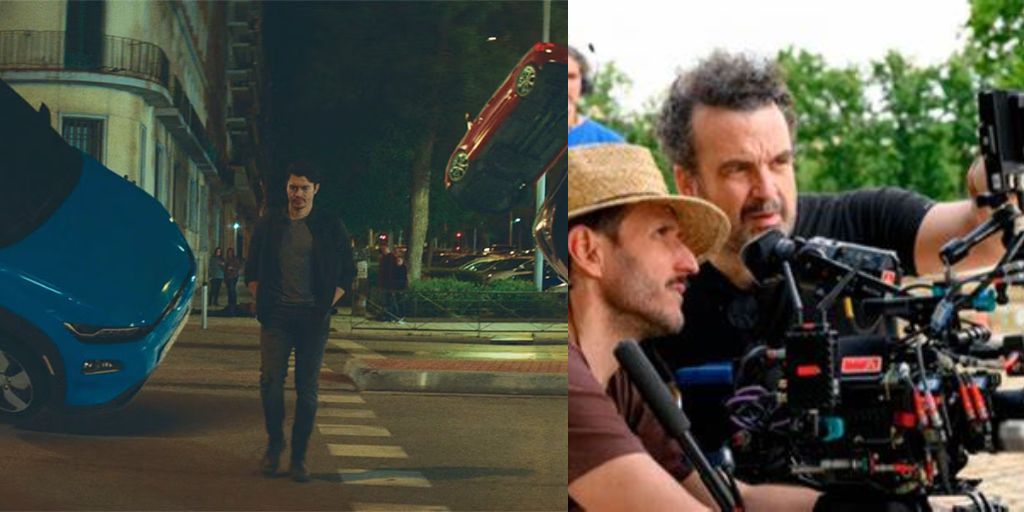Science fiction has always been a powerful way to examine human emotions. It allows filmmakers to mix surreal, futuristic ideas with our deepest feelings. Movies like Eternal Sunshine of the Spotless Mind, Her, and Reminiscence show how technology, memory, and love can connect to create moving stories.
Daniela Forever, directed by Nacho Vigalondo, follows this path by using lucid dreaming to look at grief and emotional dependence. The film had its world premiere at the Toronto International Film Festival on September 6, 2024. While Henry Golding’s strong and emotional performance drives the film, much of its complex ideas remain undeveloped.
The film draws inspiration from classics like Solaris and Inception, while showcasing Vigalondo’s unique, witty style seen in his past work, Colossal. However, Daniela Forever isn’t a typical love story. It focuses on themes of love, grief, and the negative effects of avoiding help.
The film shows the darker side of love, showing its main character in a less flattering light. As the story unfolds, it takes a turn toward obsession, similar to Alfred Hitchcock’s Vertigo.
The movie, shot entirely in Madrid, uses a stunning visual style to add to the story’s tension and emotion. Despite Golding’s heartfelt performance, the film struggles to fully show its unresolved themes and supporting characters in its larger conversation about grief.
What Is Daniela Forever About?
The movie uses a mix of sci-fi and slow emotional drama to show grief and obsession. The story starts with Nicolas (Henry Golding), a British DJ living in Madrid, who meets the kind and caring Daniela (Beatrice Grannò). At first, it seems like a simple love story—boy meets girl, falls in love, and can’t live without her.
But soon, the audience sees Nicolas grieving after Daniela’s death. Struggling to move on, his friend Victoria (Nathalie Poza) suggests a clinical study that uses a drug allowing users to control their dreams and reshape their lives.
Instead of using the drug to move forward, Nicolas decides to recreate Daniela in his dreams. This choice reveals problems in their relationship. As he becomes more obsessed, Nicolas tries to mold his surroundings to fit his idealized version of Daniela, drawing comparisons to Vertigo.
Like the characters in Hitchcock’s film, Nicolas cannot accept the loss of his love and reshapes his reality to his desires. This leads him to lose touch with reality as his dreams start blending with his waking life.
Vigalondo uses a clever approach to show the difference between the dream world and reality. In Nicolas’ real life, the scenes are shown in a dull, grainy 4:3 aspect ratio, representing his sadness and grief. But the dream world, which includes his memories with Daniela, is shown in vibrant colors and a widescreen format.

This technique helps viewers engage with the story. However, as Nicolas’ dream world grows, the film’s pace slows down, causing parts of the movie to feel repetitive.
Daniela Forever Struggles With Its Narrative
There is no denying that Daniela Forever has an interesting premise. The mix of science fiction and emotional drama is reminiscent of Eternal Sunshine of the Spotless Mind. The movie does a great job of highlighting the pain of grief and loss.
Nicolas, who is unable to move forward after Daniela’s death, risks his health to live in an imagined reality where she is still alive. However, the film does not fully show its many ideas. While the use of different visual styles is effective, the story sometimes lingers too long in certain scenes, making the dream world feel exhausting.
Nicolas relives his memories with Daniela in what feels like a Groundhog Day situation. But the lack of direction in these scenes hurts the pacing. If the dream world represents Nicolas’ emotional issues, Vigalondo needed to create more tension or show progress in the real world.
The supporting characters, such as Nicolas’ friends and the ex-girlfriend, are one-dimensional, lacking the depth needed for a story as rich in meaning as this one. While the film had the potential to show grief and identity more deeply, it falls short of digging into these themes.
As Nicolas becomes more controlling and less charming, the movie misses opportunities to address his toxic behaviors and their implications. show grief and identity more deeply, it falls short of digging into these themes. As Nicolas becomes more controlling and less charming, the movie misses opportunities to show grief and identity more deeply, it falls short of digging into these themes. As Nicolas becomes more
Henry Golding Saves Daniela Forever
Despite its issues, Daniela Forever benefits greatly from Henry Golding’s performance. His portrayal of Nicolas is both charming and heartbreaking. As the film progresses and Nicolas’ emotional state worsens, Golding brings depth and vulnerability to the role.
Even when the movie’s plot becomes muddled, Golding remains the film’s anchor. He convincingly portrays Nicolas as someone torn between love, grief, and obsession.
Golding’s ability to switch between tender moments and disturbing ones shows his range as an actor. His performance gives the character a mix of vulnerability and control, highlighting Nicolas’ inner conflict.
Golding’s role in Daniela Forever is one of his best yet. Known for his roles in lighter films like Crazy Rich Asians, Golding shows a more serious side in this movie. His raw portrayal of grief, especially in scenes where he struggles with Daniela’s growing independence in his dreams, is powerful.

These emotional moments make up for the film’s weaker narrative elements. Even though the film’s full story may lack focus, Golding’s performance brings a sense of realism and emotion to the movie,
Missed Opportunities in Daniela Forever
Although Daniela Forever has an ambitious and creative premise, it doesn’t fully live up to its potential. The idea of using lucid dreaming to show love, memory, and grief is fascinating, but the film’s execution is lacking. The narrative feels underdeveloped, and the supporting characters are not given enough attention.
The film also fails to address Nicolas’ controlling behavior in a meaningful way. Instead of diving deeper into these toxic traits, the movie leaves many of its themes unresolved.
While the film struggles with its storytelling, it excels visually. The dream sequences are beautifully shot, and the shift between the dream world and reality is done creatively and engagingly.
Despite its shortcomings, Daniela Forever still manages to offer a unique and emotional look at grief and obsession. Vigalondo’s direction, combined with Golding’s performance, makes the film worth watching, even if it falls short of fully showing its deeper themes.

Daniela Forever is a sci-fi drama directed by Nacho Vigalondo, showing grief and obsession through lucid dreaming. Henry Golding stars as Nicolas, a DJ who uses a drug to recreate his deceased girlfriend Daniela in his dreams, but this spirals into an unhealthy obsession.
The film’s unique visual style contrasts Nicolas’ dull real life with vibrant dream sequences, highlighting his emotional struggle. While Golding delivers a powerful performance, the film falls short in developing its complex themes and supporting characters. Despite its ambitious premise, Daniela Forever misses opportunities to fully show the darker sides of love and grief.
Daniela Forever had its world premiere at the 49th annual Toronto International Film Festival on September 6, 2024.




